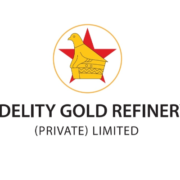Ensure Accountants are Well-Versed in Law to Leverage Tax Incentives – Mnangagwa

The Deputy Minister of Finance and Investment Promotion, David Kuda Mnangagwa, emphasized the importance of miners ensuring their accountants are familiar with existing tax laws to fully benefit from the government’s array of tax incentives.
By Rudairo Mapuranga
Speaking at the Chamber of Mines Annual General Meeting and Conference held at Elephant Hills Hotel in Victoria Falls on Thursday, Hon. Mnangagwa said these measures are crucial for minimising operational costs and promoting economic growth within Zimbabwe’s mining sector.
Zimbabwe’s government has instituted several policies to reduce the operational costs of mining, thus enhancing the sector’s productivity and profitability. Mnangagwa highlighted that the Ministry of Finance’s mandate extends beyond mere revenue collection, it encompasses economic development and investment promotion. This comprehensive approach involves crafting policies that foster business growth, create employment, and attract both local and international investors.
“The government has thus put in place a number of tax incentives for the sector in order to minimize costs of production. Part of our discussions, even in the Matete room of the Chamber, when the people in this room congregate and think of the Minister of Finance, the first role or mandate that comes to mind is the Treasury aspect, where, because I’ve travelled with my Commissioner General, Zimra, it would appear that the Minister of Finance is only interested in collecting, collecting, collecting. But, I will say, you should be refreshed to know that we have a mandate for economic development,” Mnangagwa stated.
Tax Incentives for the Mining Sector
Hon. Mnangagwa elaborated on the specific tax incentives available to the mining industry, which include:
1. Allowable Deductions and Expenditure – All capital expenditure on exploration, development, and operations incurred wholly and exclusively for mining operations is fully deductible. This provision allows taxpayers to elect to deduct such expenditure in the year it is incurred or carry it forward to subsequent years.
2. Assessed Losses – There is no restriction on the carryover of tax losses, providing significant relief for companies in their developmental stages or those facing temporary setbacks.
3. Corporate Income Tax Rate – A special reduced corporate income tax rate of 15% applies to holders of special mining leases. However, these holders are also subject to additional profits tax based on a specific profitability formula.
4. Exemptions from Certain Taxes – The Minister of Finance, after consulting with the Minister of Mines, can exempt holders of special mining leases from non-resident shareholder’s tax, non-resident tax on fees, non-resident tax on remittances, and non-resident tax on royalties.
5. VAT Deferment – To aid with cash flow, the government allows for VAT deferment on capital equipment imports. This deferment, currently with a minimum threshold of $500,000, can be granted for up to 180 days and, under certain conditions, extended to a maximum of three years for long-term projects.
The Finance Deputy Minister stressed the necessity for mining companies to have accountants who are adept at navigating the intricate tax laws to fully exploit these incentives.
“To be able to fully exploit some of these tax incentives, make sure your accountants are familiar with the law and what is afforded to you,” he urged.
Mnangagwa underscored the government’s commitment to transforming Zimbabwe’s economy through value addition and beneficiation of mineral resources. This transformation aims to bolster the secondary sector’s contribution to GDP and increase the value of exports.
“Governments will, therefore, continue to urge all mining and manufacturing industry sector players to participate in the strengthening of existing value chains through value addition and beneficiation of minerals, in the process creating jobs for our people and growing exports,” he said.
This initiative aligns with Zimbabwe’s vision of becoming an upper-middle-income society by 2030.
Addressing Industry Concerns
Hon. Mnangagwa also tackled several issues raised by industry stakeholders, including the contentious special capital gains tax. This tax was introduced to ensure that Zimbabwe benefits from transactions involving local assets sold by foreign entities.
“The intent, again, of taxing the purchaser was that you know, the seller is sold from another country, he’s gotten his money, he’s enjoying his profits, he has no obligation to come back to Zimbabwe and pay that. But the purchaser is still here in Zimbabwe and he’s holding onto the assets,” Mnangagwa explained.
He acknowledged that consultations and policy formulations are ongoing processes aimed at refining these measures to ensure fairness and economic viability.
The Role of Royalties and Beneficiation Taxes
Mnangagwa also touched upon the increase in royalties from 2.5% to 7%, citing the need for accurate reporting from miners to ensure fair taxation. The government seeks to develop iterative models to understand the true costs of mining, thereby facilitating more informed policy decisions.
Additionally, discussions are underway regarding the deferment of beneficiation taxes for companies that are investing in building beneficiation plants. The goal is to balance immediate cash flow needs with long-term economic benefits without creating opportunities for evasion.
As Zimbabwe strives toward its 2030 vision, the collaboration between the government and the mining sector will be pivotal in driving economic growth and achieving sustainable development.


